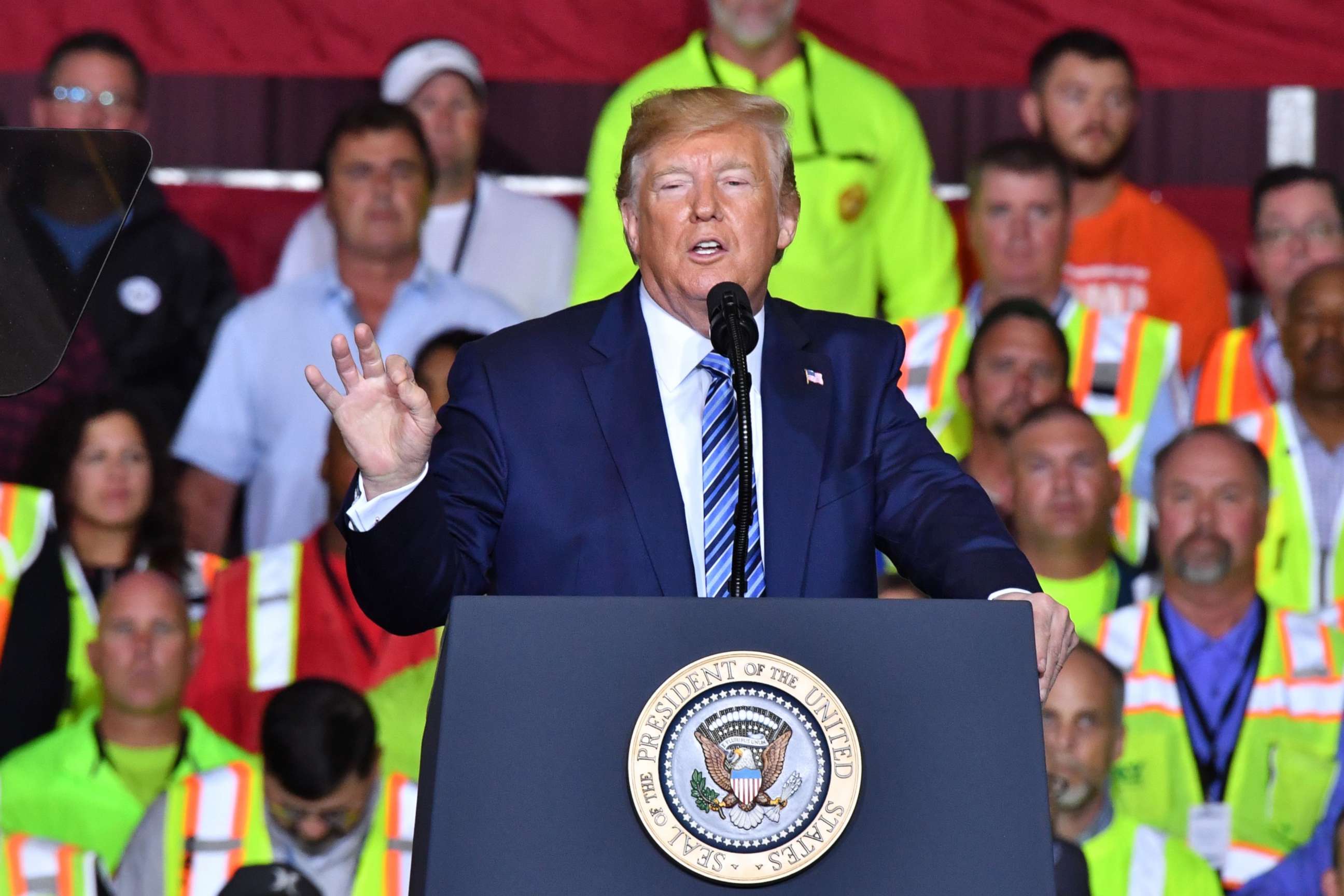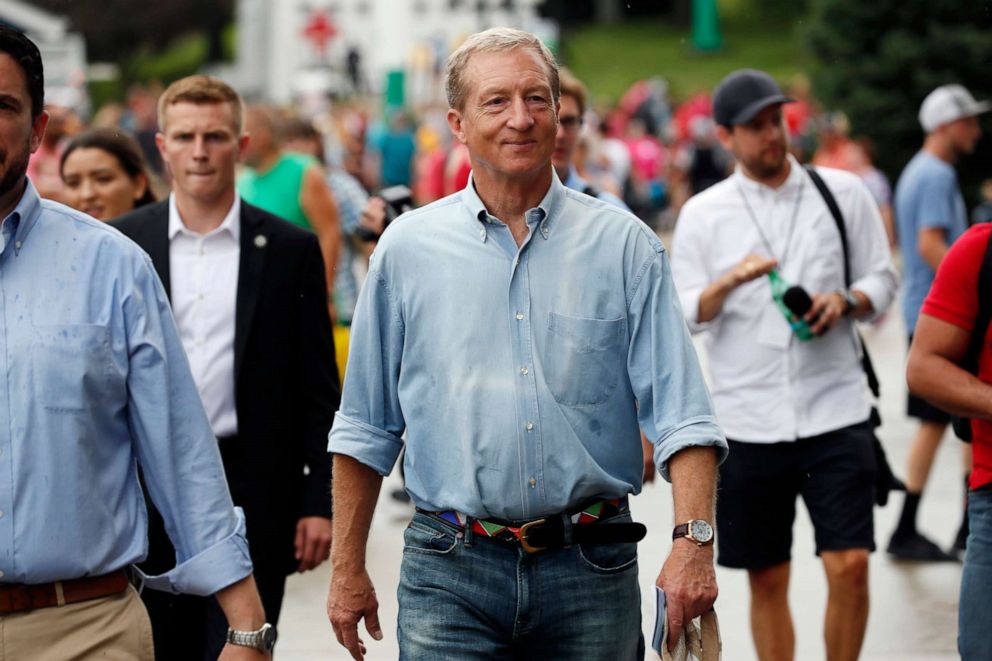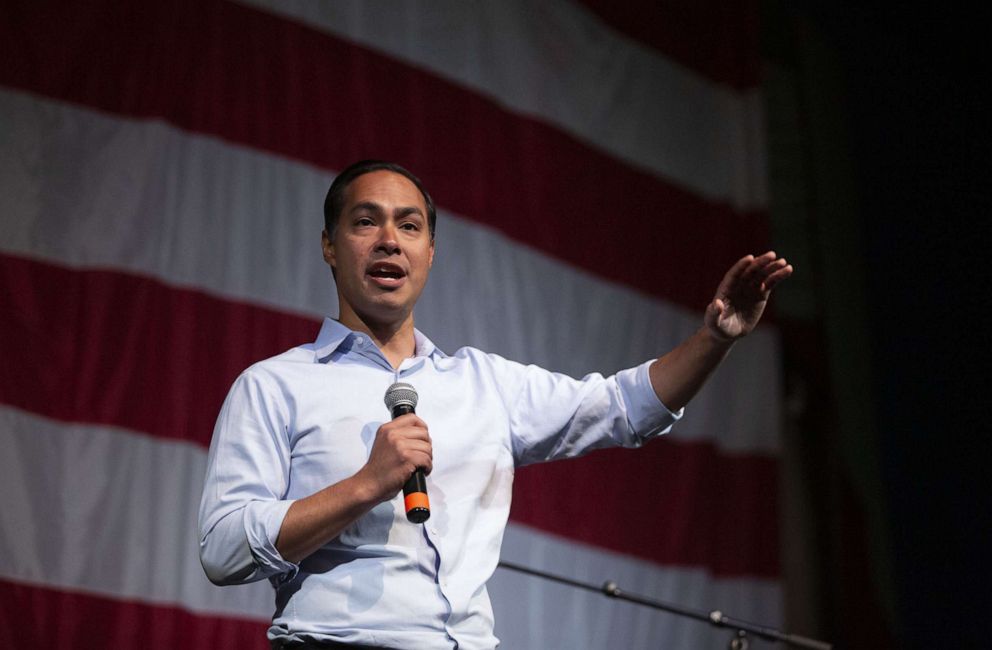The Note: Trump's step back on tariffs exposes economic uncertainties
Trump's decision to postpone tariffs on China could have lasting consequences.
The TAKE with Rick Klein
Christmas season is one thing. Election season is something else.
As campaign issues go, the economy isn't so much hiding as it's obscured by the news of any given day in President Donald Trump's time in office.
New Statue of Liberty inscription suggestions, new musings on gun laws, new rules on immigration and endangered species and new but really old attacks on TV anchors make for a tempting Trumpian news diet.

But the Trump administration's partial retreat on trade with China underscores a point that strategists in both parties readily concede: The biggest factor likely to determine whether the president wins another term is how the economy looks next fall.
Ominous headlines about recession fears, stagnating wages, fewer job openings, record deficits and struggling farmers -- and, of course, gyrations in the stock market -- serve as reminders of how tenuous recent economic gains have been.
Delaying Chinese tariffs on high-dollar electronics and footwear confirms that trade wars are not easy to win after all. Trump said they've been pushed off until after Christmas stock-ups "just in case they might have an impact on people."
But the move is an acknowledgment that they are and they will. In this political season, businesses like predictability, while the president's governing style offers little in that regard.
The RUNDOWN with Benjamin Siegel
Weeks after formally kicking off his White House bid, Democratic billionaire and activist Tom Steyer is on the verge of qualifying for the next presidential debate, in Houston, after reaching the 130,000 individual donor threshold.
Steyer, who needs to reach 2% in one more national poll, already has spent north of $10 million on his long-shot presidential bid, and has committed to spending at least $100 million on a White House run.

That easy spending is paying off for his campaign, but it has rankled other candidates -- high-profile senators and governors with name recognition and years of public service experience who have spent months campaigning around the country -- who are on the verge of missing the cut for the next round of debates.
"Tom Steyer spent nearly $10 million to buy his way onto the debate stage. But no matter what the @DNC says, money doesn't vote," Montana Gov. Steve Bullock tweeted Tuesday after Steyer's campaign announced it had hit the donor threshold.
Steyer's campaign manager fired back at Bullock, claiming that the governor was "writing off the support of thousands" of donors out of frustration with the debate criteria.
While making the debate stage would give Steyer's campaign the national audience he seeks, it may also give other Democrats in the race a useful foil.
Sens. Bernie Sanders and Elizabeth Warren, for example, have built their campaigns around rejecting deep-pocketed donors like Steyer and taking big money out of politics.
The TIP with Lissette Rodriguez
If Trump keeps up his Fox News viewing habits while on vacation in Bedminster, New Jersey, he may find a message directed explicitly at him Wednesday morning from Democratic presidential candidate Julián Castro.
The former Housing and Urban Development secretary released on Tuesday an ad directly addressing Trump and his rhetoric against minorities on the president's favorite network.

Castro's ad begins by linking Trump's language about immigrants to the recent massacre in El Paso, Texas, saying: "Innocent people were shot down because they look different from you. Because they look like me. They look like my family."
Just hours after its release, it seems Castro, who's been trying to boost his profile in a crowded field and qualify for ABC News' September debate, got the reaction he was seeking.
The Trump campaign communications director released a statement saying, in part, "Castro's campaign has failed and he's the only one who doesn't know it yet."
The rift between the Castro and Trump campaigns has not been short lived. Last week, Trump and his reelection campaign went after the Castro brothers, two of the most prominent Latino politicians, after Rep. Joaquin Castro, his brother's campaign chairman, named some of Trump donors on Twitter.
Donor names are publicly available via FEC reports, but in a statement to ABC News, the Trump campaign said Castro's tweet was "inciting violence."
ONE MORE THING
In presidential races, as Macomb County goes, so goes Michigan. And in 2020, Macomb's quintessential swing voters -- mostly white, working class -- are very much up for grabs. In dozens of interviews with ABC News Live, many voters expressed distaste for the president's words and behavior, but stopped short of concluding that they must rule out voting for him.
"It used to be heavy Democrats for a long time, but then it switched after the last election," said Ron Kibzy, a retired firefighter who's lived in Macomb County for 56 years. "And now, they may switch back. Who knows?"
THE PLAYLIST
ABC News' "Start Here" podcast: Wednesday morning's episode features ABC News' Karson Yiu, who checks in from the Hong Kong airport where clashes with police turned violent Tuesday. Then, ABC News Chief Business and Economics Correspondent Rebecca Jarvis explains why President Donald Trump is delaying an extra $300 billion worth of tariffs on Chinese goods. http://apple.co/2HPocUL
WHAT YOU NEED TO KNOW TODAY
Download the ABC News app and select "The Note" as an item of interest to receive the sharpest political analysis every weekday.
The Note is a daily ABC News feature that highlights the key political moments of the day ahead. Please check back tomorrow for the latest.




